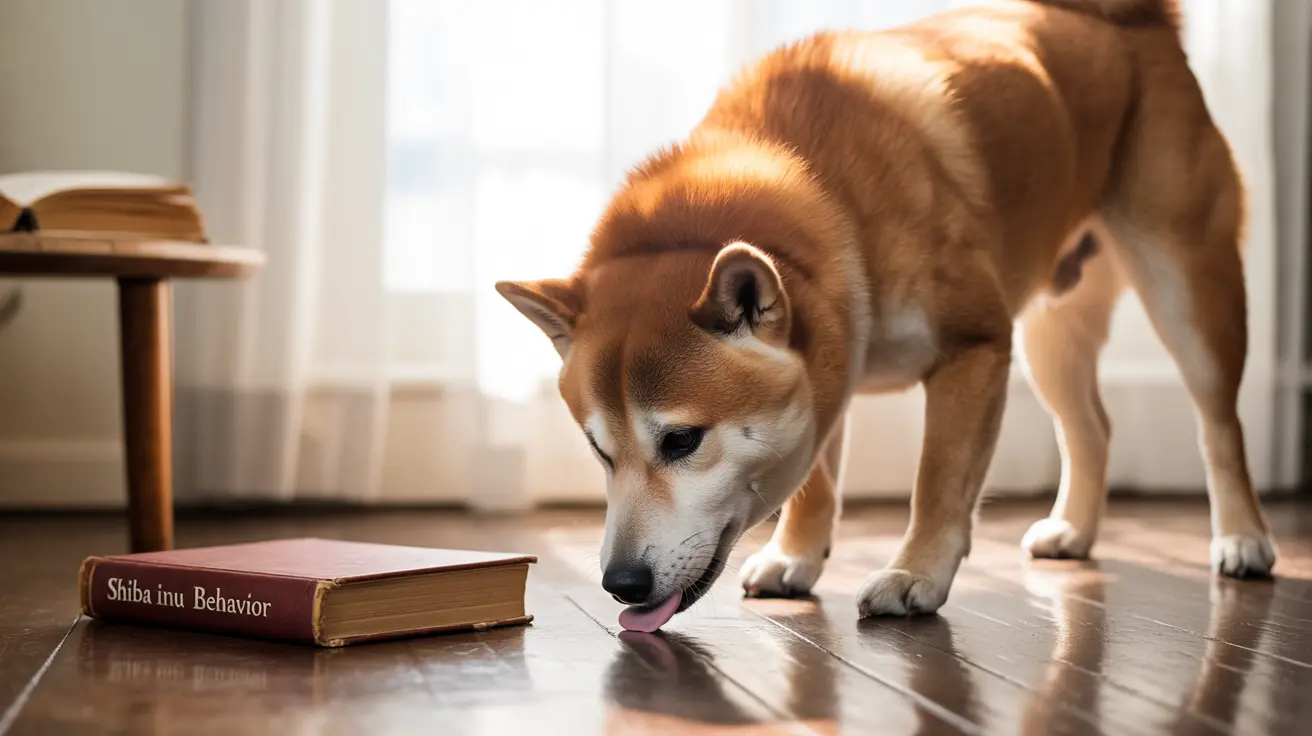If you've noticed your dog licking everything in sight – from floors and furniture to their paws and your face – you're not alone. This common behavior can leave pet owners wondering, "Why is my dog licking everything?" While some licking is normal for dogs, excessive licking might signal underlying issues that deserve attention.
In this comprehensive guide, we'll explore the various reasons behind excessive licking in dogs, help you identify when it becomes problematic, and provide practical solutions to address this behavior.
Understanding Normal vs. Excessive Licking Behavior
Dogs naturally use their tongues to explore their environment, show affection, and groom themselves. However, when licking becomes frequent, intense, or compulsive, it's essential to understand what's driving this behavior.
Normal licking typically includes occasional self-grooming, showing affection to family members, or briefly investigating new objects. Excessive licking, on the other hand, involves persistent, repetitive behavior that may be difficult to interrupt.
Medical Causes of Excessive Licking
Physical Health Issues
Several medical conditions can trigger excessive licking behavior in dogs:
- Allergies and skin infections
- Gastrointestinal problems
- Parasites and external irritants
- Joint pain or arthritis
- Neurological conditions
Digestive Concerns
Dogs may lick surfaces excessively when experiencing nausea, acid reflux, or other digestive issues. This behavior often indicates an attempt to soothe stomach discomfort or find relief from internal distress.
Behavioral and Psychological Factors
Stress and Anxiety
Dogs often use licking as a coping mechanism when feeling anxious or stressed. Common triggers include:
- Changes in routine or environment
- Separation anxiety
- New family members or pets
- Loud noises or unfamiliar situations
Boredom and Attention-Seeking
Insufficient mental stimulation or physical exercise can lead to excessive licking as dogs seek ways to occupy themselves. Some dogs learn that licking behavior attracts attention from their owners, reinforcing the habit.
Solutions and Management Strategies
Environmental Enrichment
Provide your dog with appropriate outlets for their energy and natural behaviors:
- Interactive puzzle toys
- Regular exercise sessions
- Structured play time
- Mental stimulation activities
Professional Help
When excessive licking persists, seek professional assistance:
- Veterinary examination to rule out medical causes
- Consultation with a certified animal behaviorist
- Training programs to address underlying behavioral issues
Frequently Asked Questions
Why is my dog licking everything around the house all of a sudden?
Sudden onset of excessive licking can be triggered by medical issues, anxiety, or changes in your dog's environment. If this behavior appears suddenly, consult your veterinarian to rule out health concerns before addressing potential behavioral causes.
Could my dog's excessive licking be a sign of health problems like allergies or pain?
Yes, excessive licking can indicate various health issues, including allergies, skin infections, joint pain, or gastrointestinal problems. A thorough veterinary examination can help identify any underlying medical conditions.
How can I tell if my dog's licking behavior is caused by anxiety or boredom?
Anxiety-related licking often occurs during specific triggers (like thunderstorms or being alone) and may be accompanied by other stress signals. Boredom-induced licking typically happens when the dog lacks mental or physical stimulation and may improve with increased activity.
What medical conditions can cause my dog to lick surfaces or themselves compulsively?
Common medical conditions include allergies, skin infections, gastrointestinal issues, neurological disorders, and pain. Senior dogs may also develop cognitive dysfunction, leading to compulsive licking behaviors.
How do I stop my dog from licking everything without upsetting them?
Address the root cause of the behavior through veterinary care if needed, provide appropriate alternatives like chew toys, increase exercise and mental stimulation, and use positive reinforcement training methods to redirect the behavior.
Conclusion
While some licking is normal for dogs, excessive licking warrants attention and potentially intervention. By understanding the various causes and implementing appropriate solutions, you can help your dog maintain healthy behavior patterns and improve their overall well-being.






